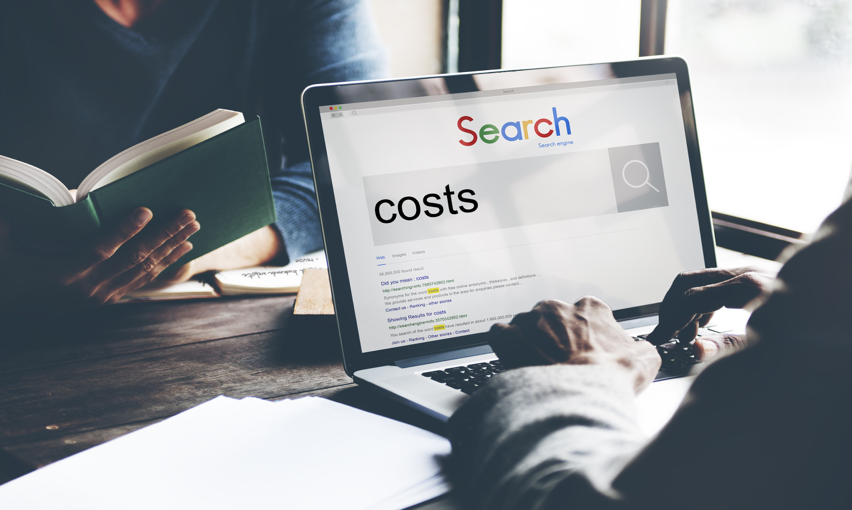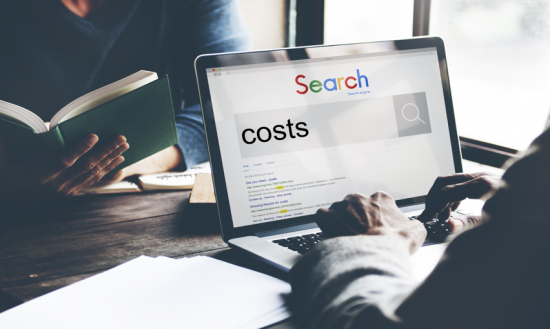Looking to reduce costs when marketing online?
Blam! A lot of conversations these days go something like this: “Let’s focus on content marketing. Amazingly high-value and high-quality content is clearly what’s Google’s looking for (all those online articles I read say so), so why sweat traditional SEO and social media as much as we used to?”
Chances are, your business is having, or has had, this internal debate. Budget optimization discussions in the world of SEO are a fact of life, and are likely to come up again and again as the sands of search shift under our feet. Google and other search engines continue to optimize their algorithms for changes in the way people look online for information and products, requiring digital marketers to continually adjust their approach to maintaining or growing organic results.
The truth – at least for now – is that great content, search optimization and social media are inextricably linked.
SEO simply can’t exist without great content, yet to give a piece of content the best chance of ranking against competitors, it needs to be properly optimized using the best and most current SEO practices. That includes proper on-page optimization and solid link profiles, both internal and external.
Then again, you know the old saying: If a tree falls in a forest and no one is around to hear it, does it make a sound? If you’ve got a good social media presence, the answer is yes. LinkedIn, Facebook and other sites are great platforms for content promotion and amplification.
In previous posts, my colleagues have pointed to many examples, including Wayfair.com sofa fort content and Yelp’s bidding process for finding people to perform a specific task. There are plenty more examples that show this is a proven strategy for standing out in a crowd.
So now that I’ve established (yay!) that content, SEO and social media must work together to drive rankings, visibility and growth, what else is there to say?
Plenty. How exactly do they fit together? What are the direct and indirect connections between the three? Let’s take a look, starting with the relationship between social signals and rankings.
How do social signals impact rankings (if at all)?
Google has been clear in saying that social media likes and shares aren’t part of the search algorithm. Matt Cutts has said, “As far as doing special specific work to say “you have this many followers on Twitter, or this many likes on Facebook, to the best of my knowledge, we don’t currently have any signals like that in our web search ranking algorithms.”
While social signals could certainly be a great indicator to Google that a page is of high-quality, access is a major roadblock. Google would first need direct access to various social networking sites; right now, the only major site that has allowed this access is Twitter.
When Search Engine Land first announced last year that Twitter would be allowing Google to access to tweets in real time, some SEOs began tracking their rankings in relation to social signals, eager to identify a direct link. Some initial results seemed to indicate that domains with strong social signals went up in the rankings following this shift.
However, since that time I’m not aware of any other wide-scale studies that could bolster this claim. So, does this mean that social signals are irrelevant when it comes to rankings?
While we can’t find a direct connection between the two, we do know there’s a strong correlation.
According to Searchmetrics’ 2015 Ranking Factors report, there are strong correlations between high rankings and social signals on Facebook, Twitter, Google+ and Pinterest. While the report didn’t look at other social networking sites, it’s very likely these findings would hold true.
In terms of Facebook and social signals, the report found that top-ranking pages have considerably more Facebook shares than lower-ranked ones. In fact, pages ranking in the first spot have twice as many Facebook shares as those ranking in the 2nd spot.
The report found similar correlations between top-ranking pages and other social networking sites. So, if we know this correlation exists, but Google says there’s no direct link, how do we explain it?
The indirect impact of social likes and shares on rankings
When we’re talking social signals, there are several types of interactions that come into play. They could be page or post likes, tweets, retweets, re-pins, votes, or any other action taken on a social networking site that could potentially increase the visibility of a page or domain.
When a link is shared on social media, the reach and visibility of that URL is increased. This is scalable. If an URL is shared one time, it will receive a little bit of extra visibility. For instance, if 50 people see the link in their Facebook feed, 5 may click through to actually view the page. If an URL is shared 1000 times, obviously the visibility and click-throughs for that URL increases exponentially.
This increased visibility has a number of indirect results. First, as a link is shared, repinned, retweeted, etc. the page receives more traffic. As more people visit that page, there is more potential for that URL to be shared, repinned, retweeted, etc. again. While these social signals still won’t directly impact rankings, all this increased visibility inevitably leads to the one element that does: links.
If visitors like a piece of content, they may link back to it or mention it via an “implied link“. This directly impacts rankings at both the URL and domain level. This is why social shares are sometimes referred to as social links (although they aren’t true links from an SEO perspective).
So, while social shares and rankings may not have a cause/effect relationship, they definitely have an important impact on rankings.
Content: The foundation of SEO
We’ve talked about how SEO (and rankings) and social media work together. To summarize, while there’s no direct link between social signals and rankings, social media is an important tool for increasing visibility and ultimately gaining increased links.
But how does content fit into this picture? Without high-quality content, you cannot expect to receive high rankings or visibility and engagement via social media. Think about it this way: To succeed at SEO, content needs to accomplish a number of tasks. It must:
- Attract inbound links
- Be relevant to the intended audience so people share and engage with it on social media
- Be optimized from a technical perspective so Google can find and index it, and identify the main theme of the page
- Target keywords and topics that people are actually searching for
- Provide a good user experience, which impacts user signals (and therefore rankings)
In other words, SEO demands content.
While there are exceptions to this rule (for instance, an e-commerce page that contains little content but is on an authoritative domain), there’s no question that content is the very foundation of SEO.
Conclusion
It’s no longer enough to work on content, SEO and social media marketing in silos. Instead, an integrated and holistic approach is now the key to driving traffic, rankings and growth.
It all starts at the keyword level, finding topics and themes your audience wants to learn about. Optimizing your content, both for your keywords and from a user experience perspective, gives your content the best possible chance of ranking. Promoting that content via social media is the final step in the cycle, increasing the visibility of your content and making sure it gets in front of the right people.
Are you taking an integrated approach to content, SEO and social media? If so, how do you use them together for optimal visibility and growth?



